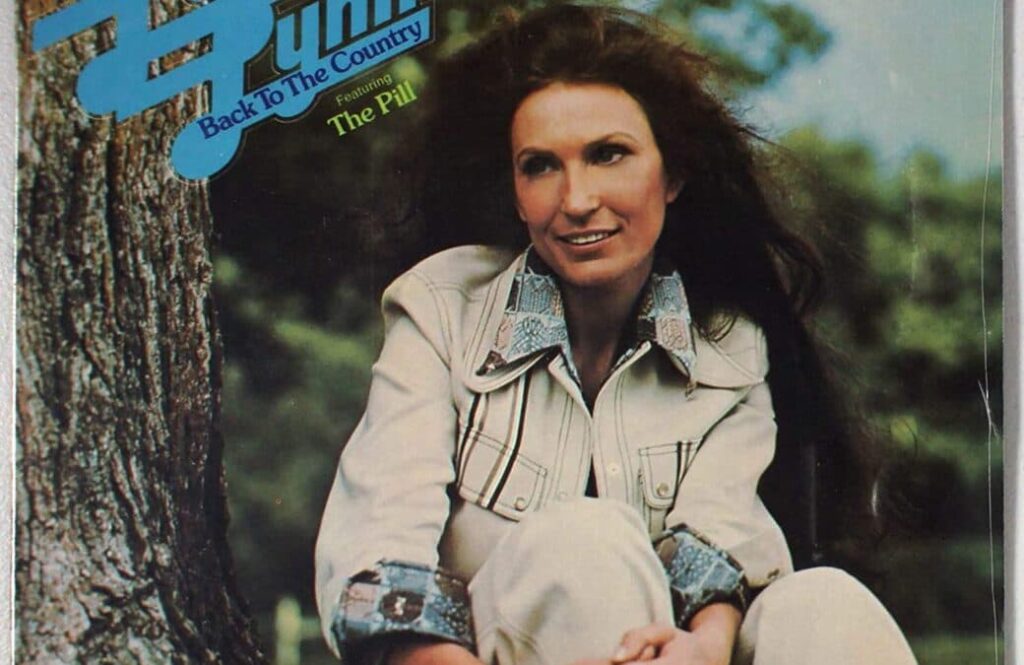
Loretta Lynn’s “The Pill”: A Woman’s Declaration of Independence
There are songs that simply entertain, and then there are songs that spark a conversation, challenge the status quo, and reflect the very fabric of a changing society. Loretta Lynn’s “The Pill,” released in 1975, falls squarely into the latter category. It was, and remains, a bold, unapologetic anthem for women seeking autonomy over their bodies and their lives, a piece of music that resonated deeply with countless women who had long felt unheard.
This isn’t just a nostalgic tune; it’s a significant marker in both country music history and the broader landscape of women’s rights. Though recorded in 1972, it took until 1975 for the song to see the light of day on her album, “Back to the Country,” a testament to its then-controversial subject matter. When it finally hit the airwaves, “The Pill” quickly garnered attention, not just for its catchy melody but for its frank discussion of birth control. While many of Loretta Lynn’s songs enjoyed consistent top-tier success on the country charts, “The Pill” faced resistance. It peaked at number 5 on the Billboard Hot Country Singles chart, a strong showing but perhaps hindered by the fact that numerous country radio stations, particularly in more conservative areas, outright refused to play it. Despite this ban, or perhaps because of it, the song gained immense publicity and unexpectedly crossed over, becoming Lynn’s highest-charting song on the Billboard Hot 100, reaching number 70. It even soared to number 1 on the Canadian RPM Country Tracks chart. This dual chart performance underscores its polarizing yet undeniable impact.
The story behind “The Pill” is as compelling as its message. Loretta Lynn, a woman who married at 13 and had four children by the time she was 18 (and ultimately six in total), knew firsthand the relentless cycle of childbearing and domesticity that defined many women’s lives, especially in rural America. The song’s lyrics, co-written by Lynn with Lorene Allen, Don McHan, and T. D. Bayless, narrate the triumphant declaration of a wife who, finally with access to birth control, can reclaim her life from endless pregnancies. She’s tired of being seen as a “brooder house” or an “incubator,” ready to shed her “maternity dress” for “miniskirts, hot pants & a few little fancy frills.” It’s a comedic, yet profoundly empowering, narrative of a woman taking charge, asserting her right to personal freedom and sexual agency.
For many women of a certain generation, “The Pill” was more than just a song; it was a rallying cry. It spoke to the quiet frustrations and unspoken desires of those who had lived under the societal expectation of constant procreation, often with little say in the matter. The availability of the birth control pill in the 1960s had already begun to revolutionize women’s lives, but Loretta Lynn’s song brought this revolution directly into living rooms and onto radio waves, often in places where such discussions were taboo. Rural doctors, Lynn herself recounted, told her that the song did more to inform and empower women about birth control than all their government programs combined. That’s the power of art, isn’t it? To distill complex social issues into a three-minute country tune that resonates with the everyday lives of ordinary people.
Listening to “The Pill” today, one can’t help but feel a swell of admiration for Loretta Lynn’s courage and foresight. In a genre often rooted in traditional values, she consistently pushed boundaries, singing about topics others wouldn’t touch: divorce, single motherhood, and indeed, birth control. She gave voice to the struggles and triumphs of working-class women, articulating their realities with an honesty that was both refreshing and, for some, shocking. Her delivery in “The Pill” is quintessential Lynn – a sassy, knowing tone that conveys both exasperation and sheer joy. It’s a defiant wink to a husband who thought his “crowin'” days were endless, a celebration of newfound liberation.
“The Pill” stands as a testament to Loretta Lynn’s unique brand of feminism – not the academic kind, but the lived, gritty, down-to-earth variety that understood the real implications of having control over one’s own body. It was a song that, despite its initial resistance, ultimately became an iconic part of her legacy, forever cementing her role as a trailblazer who wasn’t afraid to sing the truth, no matter how uncomfortable it made some folks feel. And for those of us who remember the world before the “pill,” it serves as a powerful reminder of how far we’ve come, and the battles fought by women like Loretta Lynn to get us here.